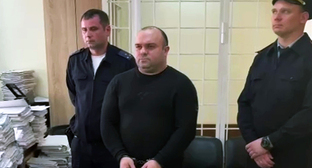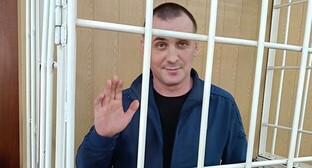21 June 2012, 22:00
Statement of the Russian Muftis Council in context of decision of the Lenin Court of Orenburg on Muslim books
The Russian Muftis Council is hereby expressing a high degree of concern and protests against another illegitimate decision of Judge Nuzhdin, A. V., of the Lenin District Court of the city of Orenburg passed against Muslim books. The whole Muslim community of Russia is extremely concerned about the situation. The discussion of this topic is run at different levels for many years; however, unfortunately, the situation has not improved since our earlier protests and statements.
The Russian Muftis Council and the Russian Muslim organizations appreciate the efforts undertaken by the bodies of the General Prosecutor's Office towards combating extremism; in particular, withdrawing from circulation the literature containing calls to extremist activities.
However, we are still witnessing facts of putting Muslim religious literature on the list of extremist materials; and quite often the reason is in not always objective, reasonable, comprehensive and complete conclusions of experts.
A new reason for our concern was the fact that on March 26, 2012, Judge A. V. Nuzhdin from the Lenin District Court of Orenburg satisfied the prosecutor's motion on 65 (!) titles of theological and historical literature published by of almost all Islamic publishing houses of Russia. A copy of this decision that entered into force back in April 2012 was recently presented to book sellers at the fair-sale of Muslim publishers held in Kazan.
We are not fully satisfied with the work of the Expert Council under the Russian Ministry of Justice; however, even this Council made no conclusions on the above books.
The above prosecutor and the judge of the Lenin District Court of Orenburg failed to invite to the hearing any author, translator or publisher as a defendant, and made their decision, which threatens the loyalty of Muslims to our state, behind the scene!
The Russian Muftis Council hereby declares that the prohibition of religious literature is perceived by us as an attempt to revive the total ideological control. The Russian Muftis Council is resolutely stating that this practice is unacceptable in a democratic society and universal strive for the respect of the freedom of speech and religion, and is a worrying signal for Russian citizens.
Muslims in Russia are convinced that definition of the list of extremist religious literature is an internal matter of each confession; and the appropriate decisions should be made at this level. To make decisions on putting religious literature on the list of extremist materials, the respective bodies must have expert conclusions of Russian religious organizations themselves; and for this particular purpose the Expert Councils, including those on religious literature, have been set up and work.
We hereby express our firm conviction that it is necessary to suppress - by means of the law - the activities of only those organizations, which violate the current legislation; and not to blame the religious literature for the existing socio-political problems.
Moscow, June 21, 2012
Source: the official website of the Russian Muftis Council





Комментирование через Кавказский узел